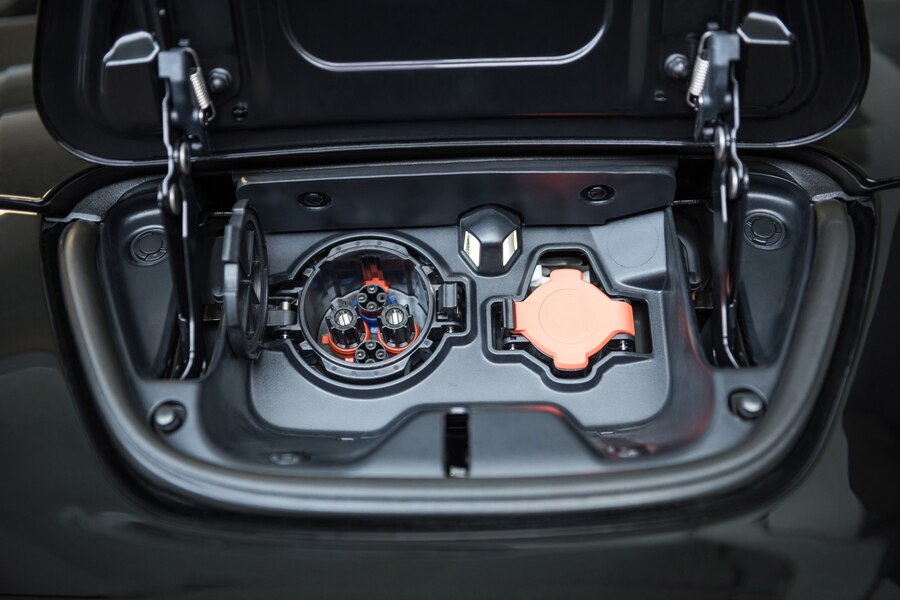Understanding Car Battery Life: Tips to Maximize Longevity and Performance

The car battery life is a vital aspect of vehicle maintenance that directly impacts your car’s reliability and performance. On average, a car battery lifespan ranges from about 3 to 5 years, although certain conditions can either extend or reduce this period. For many, understanding how battery life in cars is influenced by driving habits, climate, and maintenance can prevent sudden breakdowns and save on replacement costs.
In this article, we’ll provide practical insights and tips to help you extend your car battery life. From learning about the common causes of battery wear to implementing daily practices, these strategies are designed to keep your vehicle powered and efficient. Whether you’re interested in the average car battery life or want to ensure longevity, this guide covers everything you need for a dependable car battery.
What is the Average Car Battery Life?
Car battery life generally spans from 3 to 5 years, depending on several factors. While batteries may last longer in milder climates, extreme temperatures—whether too hot or too cold—can accelerate wear. Cold weather slows down the chemical processes in the battery, leading to potential failures, while heat can corrode internal components faster, reducing the overall lifespan. Knowing your region’s climate and driving patterns can give you a better sense of how long your battery will last.
Here’s a quick table showing the average car battery life under various conditions:
| Condition | Expected Battery Life |
| Mild Climate | 4-5 years |
| Hot Climate | 3 years |
| Short Daily Commutes | 3-4 years |
| Regular Long Drives | 5 years |
Key Factors Affecting Car Battery Life:
- Climate: Hot weather speeds up corrosion, while cold weather slows down reactions, affecting battery life in cars.
- Driving Habits: Frequent short trips don’t allow the battery to recharge fully, reducing car battery longevity.
- Vehicle and Battery Type: Different types of vehicles and batteries have varying power needs and lifespans.
Common Reasons for Reduced Battery Life
While all batteries eventually reach the end of their car battery lifespan, several factors can cause them to fail sooner than expected. Here are some common reasons for reduced battery life in cars:
- Environmental Factors: Extremely hot or cold temperatures can have a detrimental effect on car battery longevity. In hotter climates, batteries tend to degrade faster due to increased corrosion, while in colder climates, the chemical reactions slow down, affecting the battery’s efficiency.
- Accessory Use When Idling: Using electronics like headlights, air conditioning, or even the radio when the engine is off can significantly drain the battery. This constant strain impacts how long car batteries last and reduces average car battery life over time.
- Age and Storage: Batteries naturally degrade over time, but improper storage can hasten this process. Leaving a car unused for long periods without recharging the battery can cause it to lose capacity, shortening its overall lifespan. Regularly checking and charging a battery in storage can help preserve car battery life.
How to Maximize Car Battery Life
Improving car battery life is about consistent care and understanding your battery’s needs. By adopting the following maintenance practices, you can ensure optimal performance and extend the lifespan of your car battery:
- Inspect and Clean Terminals Regularly: Battery terminals can corrode over time, impacting performance. Clean them regularly with a mixture of baking soda and water to remove buildup and ensure a good connection. This simple step can add to your car battery longevity.
- Limit Short Drives: Frequent short trips can prevent your battery from recharging fully, leading to a gradual loss of capacity. Aim to take your car on longer drives whenever possible, giving the battery enough time to recharge. This habit plays a crucial role in maintaining car battery life.
- Avoid Excessive Accessory Use While Idling: When you’re parked with the engine off, avoid using the car’s electronics like the air conditioning or radio. These functions draw power from the battery without allowing it to recharge, which can reduce battery life in cars.
- Store in Optimal Conditions: If you’re leaving your car unused for a while, park it in a garage or shaded area to protect it from extreme weather. If possible, use a battery maintainer to keep it charged without risking overcharging, especially during longer periods of inactivity. Proper storage is essential for car battery longevity.
Signs of a Dying Battery
Understanding the signs of a failing battery can save you from inconvenient breakdowns and ensure you replace it before it fails entirely. Here are some common indicators that your battery may be near the end of its car battery lifespan:
- Slow Engine Crank: If it takes longer for your engine to start, this could mean your battery is weakening.
- Dim Lights and Electrical Issues: Dimming lights, particularly at idle, are often a sign that your battery is no longer holding a full charge.
- Frequent Jump-Starts Needed: Needing to jump-start your car more frequently is a clear indication that the battery is failing.
To confirm if your battery needs replacement, consider testing it with a voltage reader or consulting a professional mechanic. Regular testing can give you an accurate sense of how long your car battery will last.
Choosing the Right Battery for Longevity
Selecting the right battery can significantly impact car battery life and ensure your vehicle runs smoothly for years. Consider these tips when buying a new battery:
- Brand and Warranty: Opt for established brands that offer warranties, as these batteries are often of higher quality and more reliable.
- Capacity and Compatibility: Ensure the battery matches your vehicle’s requirements for optimal performance. Using the wrong battery can lead to poor performance and reduced battery life in cars.
Conclusion and CTA
Taking proactive steps toward proper car battery maintenance can make a significant difference in car battery life. From routine cleaning and checking to smarter driving habits, these practices help maximize battery performance and keep your car running smoothly.
For reliable and professional car battery services, consider KwikFix Auto. Whether you need a battery check-up, replacement, or emergency assistance, KwikFix Auto offers prompt and dependable car care at your convenience. Visit KwikFix Auto or call +91 9950 345 345 today to schedule a service and keep your car battery in optimal condition.
Frequently Asked Questions
Q1. How long does a car battery last?
A1. The average car battery life is between 3-5 years, though this depends on several factors like climate and usage.
Q2. What reduces car battery life?
A2. Extreme weather, frequent short trips, and excessive accessory use can all shorten car battery lifespan.
Q3. How can I extend my car battery life?
A3. Regular maintenance, avoiding short trips, and keeping the car in optimal conditions can all help improve battery life in cars.
Q4. Can I extend my battery life in a cold climate?
A4. Yes, cold weather may preserve battery life slightly more than heat, but it may also reduce temporary performance.
Q5. Why does my battery drain quickly when the car is off?
A5. Key-off drains, from accessories like alarms and keyless entry systems, can deplete the battery over time.
Q6. Is it okay to buy a used car battery?
A6. Used batteries generally have a shorter lifespan; it’s best to invest in a new battery when possible.
Q7. Do short drives affect battery life?
A7. Yes, short trips prevent full recharging, impacting car battery longevity over time.
Q8. How do I know it’s time to replace my car battery?
A8. If you notice frequent jump-starts, slow engine cranks, or dimming lights, it’s likely time for a replacement.
Related Articles
Car AC Gas Filling Cost | Electric Car Battery Capacity | How Car AC Works | How to Clean Car AC Filter | Car AC Repair Cost | AC Chair Car vs Executive Chair Car | Which Gas is Used in Car AC | Does AC in Car Consume Fuel | Why My Car AC is Not Cooling | Xylo Car Mileage with AC





